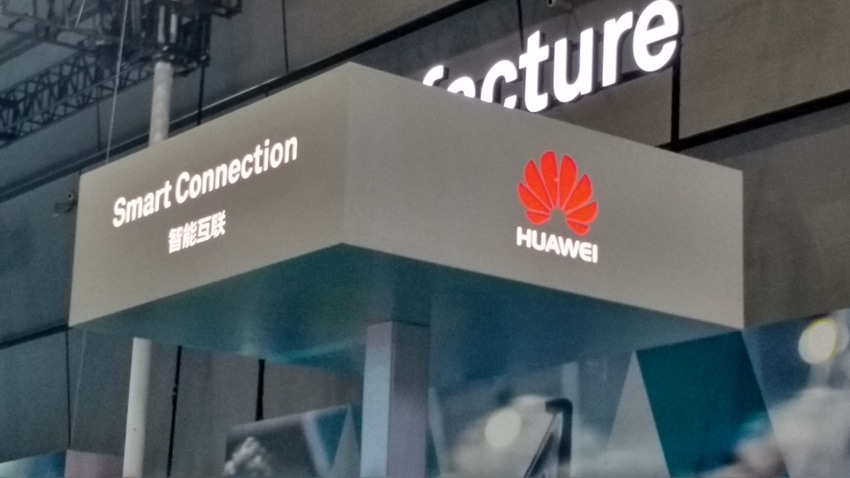Huawei has unveiled its new strategy to take over the world focusing on ICT infrastructure, smart devices, artificial intelligence and digital transformation.
April 11, 2017

Huawei has unveiled its new strategy to take over the world focusing on ICT infrastructure, smart devices, artificial intelligence and digital transformation.
Speaking at the 14th annual Huawei Global Analyst Summit, an army of Huawei executives outlined the ambitions of the organization to capitalize on the craze of new technologies taking hold of the world, with cloud computing forming the foundation for future growth.
“The journey to an intelligent world has already begun,” said Eric Xu, Huawei’s Rotating CEO. “Many years of exploration and innovation in technology are driving industry development, presenting huge business opportunities.
“Huawei will remain committed to building more connections, enlarging data pipes, and driving digital transformation. By focusing on ICT infrastructure and smart devices, we will enable this intelligent world and drive its ongoing progress.”
Xu also took the opportunity to outline his vision on the public cloud, believing it has already become a basic business model for the giant. The team will initially focus on public cloud services, building an open public cloud platform, which will include public clouds develop together with operators, and ones which are operated independently.
The move is one which we’ve had suspicions of for some time, but it appears it is finally coming to fruition. Huawei execs have constantly been on the receiving end of whether the company would be making a move into the lucrative public cloud space, taking on the likes of AWS, Google Cloud and Microsoft Azure, but it will be interesting to see whether the momentum from the carrier business can be taken forward.
While Huawei was prime to take over the mantle from faltering giants Ericsson and Nokia in the networking infrastructure business, the giants in the cloud game are going from strength to strength. Each of the top four is growing at a rapid rate, increasing the gap from the rest of the pack, and it doesn’t seem to be slowing down. Huawei will be playing catch-up here, a position it has not been in for some time, however it does have some significant cash and manpower to throw at the situation.
Until recently it was believed Huawei took care of Ericsson and Nokia through undercutting on price, but this presumption is no longer. At MWC, we spoke to a number of execs who highlighted Huawei technology was simply better, as was account management. Should this momentum and mantra be taken into the public cloud game, AWS and co. might just have something to worry about, but in the first instance, fringe players such as Oracle, Alibaba and Deutsche Telekom should be manning the battle stations.
These words were also followed up by Chief Strategy Officer William Xu, who highlighted while digital transformation will create value for ambitious companies around the world, this would have to be underpinned by ICT infrastructure, and the cloud to ‘unleash the power of connectivity’.
Although the focus on cloud computing will hardly come as a surprise, there does seem to be more of a foundation to these statements. Recently, our boss Steve Saunders had the chance to sit down with David Wang, President of Network Solutions at Huawei Technologies, to explore the future of the business.
“People have been talking about cloud for a while, but we think we’re now at a point in the industry where cloud will reshape everything,” said Wang. “That’s why we have released our entire end-to-end all-cloud network solution.”
The new approach to an all-cloud world is formed around priorities. Today, many organizations prioritize technology in the decision making process, whereas Wang wants to flip this around with value being the first consideration.
“The assessment should be value-based, first, not technology based,” said Wang. “Otherwise you’re just doing what the vendors want by fitting in with their agendas; one just wants to sell their chip set; another wants to put their competitor out of business. That’s no good. So we think the analysis should be value-based, and in thinking about how to define an all-cloud network we basically came up with four key features or characteristics that should be included.”
The first characteristic is openness, allowing service providers to easily add new applications or new features. Secondly, is agile architecture which will allow operators to compete with the DevOps model employed by OTTs. The third is intelligence to allow for a decentralized network using the cloud-based architecture to ensure each component can control resource utilization in a much smarter way. The final point is called high efficiency, which is achieved through the successful implementation of the three prior points.
We’d highly recommend reading the entire interview which you can find by following this link.
About the Author(s)
You May Also Like








.png?width=300&auto=webp&quality=80&disable=upscale)


_1.jpg?width=300&auto=webp&quality=80&disable=upscale)


.png?width=800&auto=webp&quality=80&disable=upscale)